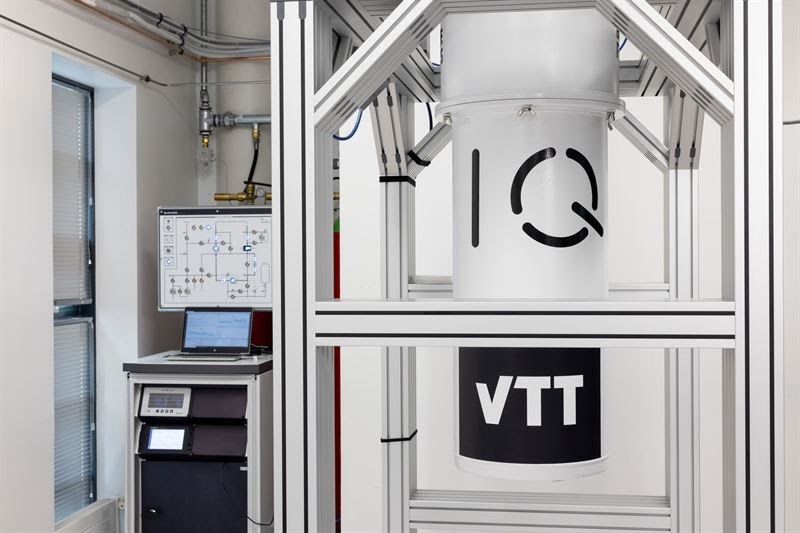VTT Technical Research Centre of Finland has opened its 5-qubit quantum computer for Finnish and European companies, enabling them to develop quantum algorithms and software and assess their suitability for solving practical computational problems. The quantum computer is accessed through the LUMI supercomputer, which is located in CSC data center in Kajaani, Finland.
 VTT's 5-qubit quantum computer. Image Credit: VTT Technical Research Centre
VTT's 5-qubit quantum computer. Image Credit: VTT Technical Research Centre
Quantum computers and quantum computing will revolutionise many sectors. Finnish and European companies can now have access to a Finnish quantum computer based on superconductive technology by paying a fixed monthly fee.
It has been predicted that especially the financial sector and the pharmaceutical industry will be among the first to benefit from the computing power of quantum computers. However, VTT’s quantum computer can be used by all companies, regardless of the industry they represent or their size. For example, quantum computing may be suitable for solving a variety of problems related to optimisation in a wide range of industrial sectors.
“The computing power of quantum computers as well as their ability to solve problems will develop fast over the coming years. Companies must therefore begin to learn about quantum computing now, so that tehy will gain an understanding of how they can use the new technology to develop their products and services,” explains Pekka Pursula, Research Manager for quantum technologies at VTT.
In practice, companies can use the development environment to develop quantum algorithms and assess what the algorithms will make possible in the future when the number of qubits and the computing power of quantum computers increase. When the size of quantum computers increases, their ability to solve problems develops exponentially.
Towards Hybrid Computing with the LUMI Supercomputer
The quantum computer can be used from one's own computer. The user will first contact the LUMI supercomputer, which will then establish a connection to the quantum computer. Users can program quantum algorithms with the Qiskit and Cirq programming tools.
When the size and power of quantum computers increase, the preconditions for hybrid computing, solving problems through the fusion of quantum computing and classical supercomputing, will improve. This will further improve our ability to solve practical computational problems.
"Collaboration paves the way for the future. Quantum and high-performance computing are complementary technologies: they are suitable for solving different types of problems and thus complement each other. LUMI, one of the world's most powerful supercomputers, will once again demonstrate its capabilities as a booster for both scientific and commercial calculations, creating new hybrid usage possibilities", says Kimmo Koski, Managing Director of CSC - IT Center for Science.